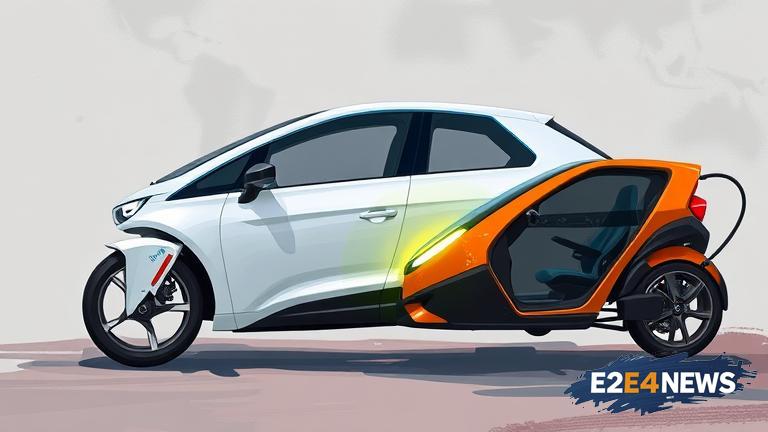The Indian government has announced a comprehensive plan to promote the adoption of electric vehicles (EVs) in the country. The plan includes a range of incentives and initiatives aimed at encouraging the use of EVs, reducing greenhouse gas emissions, and improving air quality. According to reports, the government plans to offer subsidies to EV manufacturers, as well as to consumers who purchase EVs. The subsidies are expected to be in the form of tax exemptions and rebates. Additionally, the government plans to invest in the development of EV charging infrastructure, including the installation of charging stations along highways and in urban areas. The plan also includes measures to promote the use of EVs in public transportation, such as buses and taxis. The government has set a target of having at least 30% of new vehicle sales be electric by 2030. To achieve this goal, the government plans to work with state governments and private companies to develop EV-friendly policies and infrastructure. The plan also includes measures to promote the use of EVs in rural areas, where access to charging infrastructure may be limited. The government has announced plans to set up EV charging stations in rural areas, as well as to provide training and support to rural communities to promote the adoption of EVs. The plan has been welcomed by environmental groups and industry experts, who see it as a major step forward in reducing India’s dependence on fossil fuels and promoting sustainable transportation. However, some experts have raised concerns about the feasibility of the plan, citing the need for significant investment in infrastructure and the potential for disruptions to the existing automotive industry. Despite these challenges, the government remains committed to promoting the adoption of EVs, and has announced plans to review and revise the plan as needed to ensure its success. The plan is part of a broader effort by the Indian government to reduce greenhouse gas emissions and promote sustainable development. India has set a target of reducing its carbon emissions by 33-35% by 2030, and the promotion of EVs is seen as a key part of this effort. The government has also announced plans to promote the use of renewable energy, increase energy efficiency, and reduce waste. The plan to promote EVs has been welcomed by the automotive industry, which sees it as an opportunity to develop new technologies and create new jobs. Several major automotive companies have already announced plans to invest in EV manufacturing in India, and the government has announced plans to provide support and incentives to these companies. The plan is also expected to have a positive impact on public health, by reducing air pollution and promoting cleaner transportation. According to estimates, the adoption of EVs could reduce air pollution in Indian cities by up to 50%, and promote significant improvements in public health. Overall, the plan to promote EVs in India is a major step forward in promoting sustainable transportation and reducing greenhouse gas emissions. With the right support and investment, it has the potential to transform the Indian automotive industry and promote significant improvements in public health and the environment.
